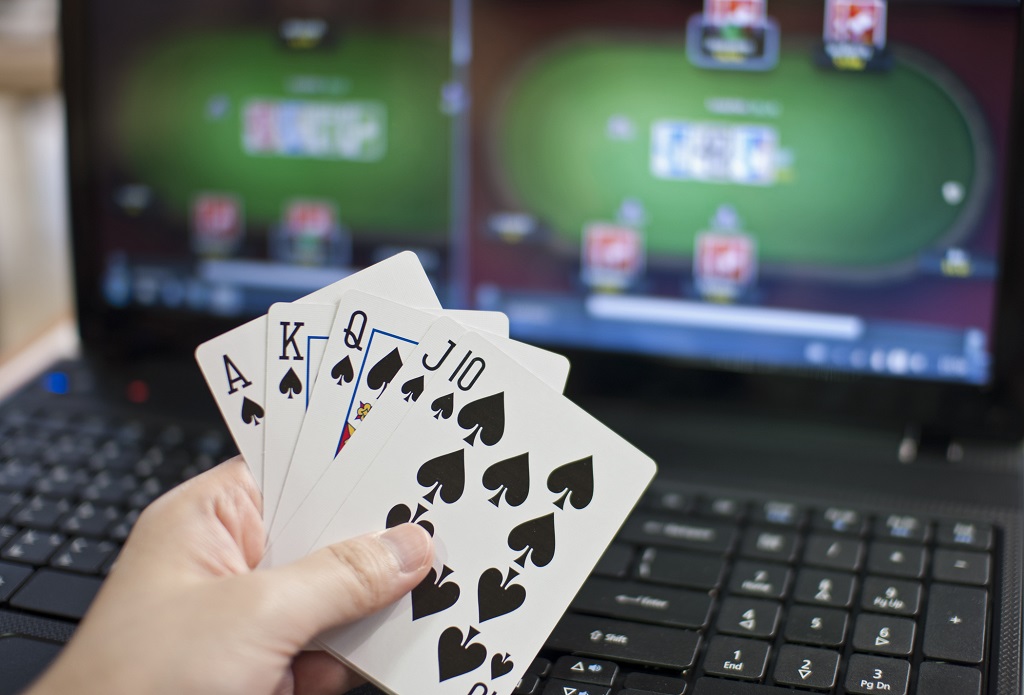How to Use Tells to Improve Your Poker Win-Rates
A lot of poker strategy is based on mathematics. Odds, outs and hand ranges all factor into how you play. In many ways, poker tells bring the game to life. These are factors involving the way your opponents behave while playing. They can give you clues to whether your opponent is bluffing – or maybe has a monster hand.
When you play real-money poker, the number of tells you can use is naturally limited. There are still several things to look for – and to combine with what you already know about a player. Live poker is a far richer environment for tells. You can spot a player who is nervous or use common ‘acting’ behaviours to assess the strength of their hands.
This guide will show you how to read poker tells. The information below starts with the online game and then moves on to live poker. Here is what you will find:

When you are playing online poker, whether on your desktop or mobile device, you have less ‘human’ information to go on, which makes bet sizing the number one thing to look out for. The amount players bet can be used to narrow their range of hands, giving you insight into what they are holding.
An extreme (though common!) example is player that raises their strong hands, though tends to limp with Aces in an attempt to trap opponents. When you see this player raise, you have some very important information – they do not have Aces!
Another variation is someone that bets half pot after the flop with a strong hand, and a different amount (3/4ths for example) with a draw or weaker hand. Some players will check-raise with certain types of hand – and lead out when they did not have the lead in the betting with mid-strength holdings.
This type of bet sizing tell is difficult to remember when you are playing online against a lot of different opponents. A great way to take advantage is to take notes, including the size of bets and the cards shown down – you will be surprised how quickly patterns emerge from this.
You need to be careful with timing tells, as there are many reasons not associated with a player’s cards that can cause slow action. A player might be involved in hands on several tables or have a slow internet connection.
The most useful timing tell is a quick check or a quick call. This shows that a player did not need to consider their options for very long, and usually represents a weak hand (check) or a mid-strength hand in the case of a call. Many players will often call quickly with a draw to a flush or straight. If a safe card comes on the turn, you can bet an amount that would make it a mistake to call.
If a player suddenly wakes up in the chat, this is a sign of confidence. Players who are bluffing rarely want to draw attention to themselves – either in live poker or online. Someone goading you to call via text chat is often trying to look like they are ‘reversing’, trying to get you to call in the hope that you will ‘see through’ their bluff and fold. Far more frequently, they have a nut of near nut hand, and would love you to make the call. You can often expect some stick in the chat when you do call and lose the hand.
If you see an opponent chatting after the river, make a note of what they show down. Like all tells, you will find that this is player dependent – and some people will have bluffs when they do this.
Poker pro Mike Caro said in his famous book, “Mike Caro’s Book of Poker Tells”, that the most common way to get information on your opponent’s hand is to reverse their behaviour. When an opponent acts weak or unsure, for example signing or looking upset when a river card hits – they often have monsters. Conversely, when an opponent acts bravely, staring you down after making a big bet and almost ‘daring’ you to make the call, they are often weak.
While this is still the case with many players, it is now common knowledge among many people that enjoy live games. For this reason, you should watch the players in your game before you give too much credit to their weak means strong / strong means weak behaviours.
Many of the live poker tells covered here are deliberate, under direct control of the player. Shaking hands is an autonomic response, caused by a surge of adrenaline (epinephrine). While you might associate this with nerves / weakness, it is usually the opposite! Players who just flopped the stone cold nuts, and are pushing chips forward to raise or to call your bet, will often have visibly shaking hands.
This same response can sometimes be seen as a rapid neck pulse, or even in a sudden sweat response.

Players who are making big bluffs don’t want to do anything that will give this away. A default response for many players is to become very still, refusing to communicate or to make eye contact. This tell is player dependent, it is worth watching to see if individuals also do this when they are holding a monster hand.
The opposite behaviour involves relaxation. A player might sit back and even seem to be unconcerned with the action in the hand – for example watching the game on TV or chatting with other players. Pre-flop, this can be genuine, that player usually intends to fold. When there has been action on later streets, it can be a big sign of confidence (a monster hand).

Bet sizes do come into play in live poker. Now you have some extra information, it is not just the amount of chips a player bets in a specific spot which counts – it is the way they bet which can help you decide.
Sometimes players will casually scatter their chips in the pot. Other times they might stare at you while aggressively slamming a big bet down. On the opposite side, you might see clips slide gently into the pot, almost reluctantly.
While the weak means strong rule of thumb will let you know whether your opponent has you beaten much of the time – you need to take other factors into account. Some players will deliberately reverse this tell, knowing that you interpret it a certain way. Take a note of how your opponent’s handle chips over several hands, and you will start to see patterns repeat.
Some players will also shuffle their chips between hands. This is not a tell on its own, though changes in how they do this (or whether they do it at all) can give you a clue as to how comfortable / confident they are feeling.
Players vary in their level of confidence at a table. Some are chatty all the time, while others remain quiet. In order to get a tell from the way a player chats, you first need a base-line – observing their behaviour over several hands. While this type of tell can be reversed, needling and opponent or making statements about your hand is usually a confident act. Players that are bluffing are more likely to keep quiet.
Smiles are easy to fake, though with a little practice you should be able to spot the difference. A fake smile (which may be an act, signifying a weaker hand) is more focused on the mouth, with the lips drawn outwards towards the ears. Real smiles use the eye area, with the lips curved upward. Real smiles signify confidence – and so a bigger possibility of a real hand.
Tells alone are not nearly enough to win big in poker games – live or online. While you can get an edge with them, this should be considered an extra, with poker fundamentals taking first place.
The most important information is the range of hands your opponents will raise, call and re-raise with from different positions – and how they will act with different parts of their range depending on how the board plays out.
With this information, playing more hands from position than out of position, and a solid understanding of poker odds – you’ll be in a position to make a lot more money than you would with people-reading skills alone.